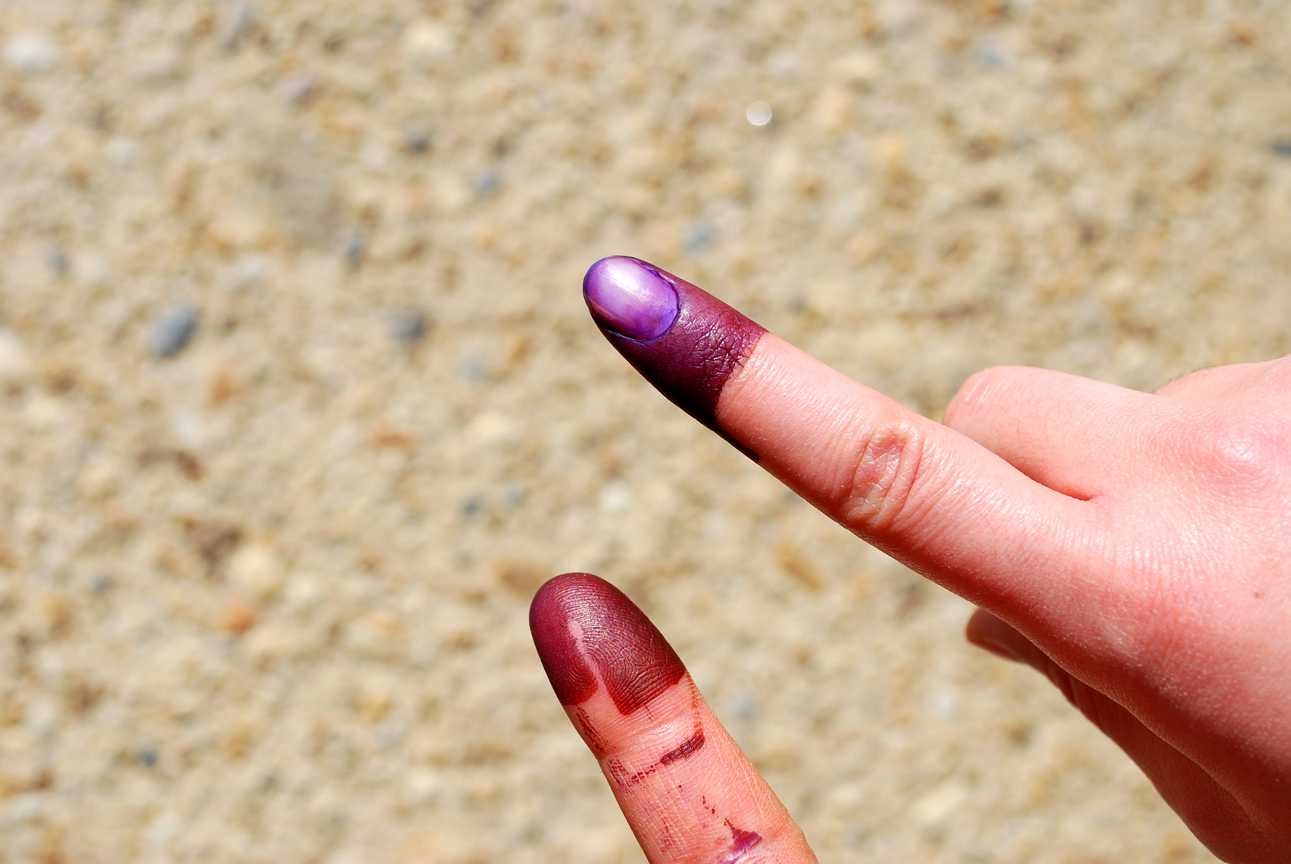The Stain of a Vote: One Student Finds Power in a Purple Finger
July 9, 2011

Published: April 15, 2010
Ever since the British and French carved up territory in the Middle East as a result of World War I, the Iraqi people have never enjoyed the kind of stable government that is necessary for a nation to thrive. By the time a new government came to power, another faction was already organizing the coup that would soon overthrow it.
As I sat in the back of our car, my parents gave my sister and me a detailed history of the various parties and leaders that have held fleeting positions of power. We were on our way to Washington D.C., where we would participate, as naturalized U.S. citizens who have retained our Iraqi citizenship, in what some see as the first legitimate Iraqi election. The 2005 attempt, having been plagued by violence and corruption, warded off many potential voters. Although these setbacks have not evaporated, a stronger sense of confidence has proliferated among the Iraqi people, fueled by an underlying impatience with the volatile state.
As we drove from our hotel to the polling place after a night’s stay in the nation’s capital, anxiety pulsing in my chest, we pulled out four pens from the glove compartment. There was a conspiracy theory spreading that pens provided at polling stations contained ink that would disappear soon after making one’s mark on the ballot, thus discounting one’s vote.
We pulled up to our destination and noticed an Iraqi Arab family to our left; on our right was a group of Iraqi Kurds, clad in their traditional dress, surrounding an SUV adorned with flags and photos of their preferred candidates. A large speaker atop their car sang traditional Kurdish songs with pride. The elusive “free and fair” democratic elections suddenly became more tangible. Apprehension blurred with excitement as I got out of the car, dependable pen in hand.
My family and I entered the Hilton Hotel where the voting took place, joined one of three lines, and exchanged bewildered glances with dozens of Iraqis: families from Arbil in the north to Basra in the south. The nuances that separated us were grounded by our mutual awareness that we all shared the same fundamental story: for whatever reason, at whatever time, each of us had left the beloved land of the two rivers. I was surrounded by men and women who looked like the extended family members I had met during my two trips back home in 2004. The buried longing for the country I left at the age of two, which I always carry with me, slowly surfaced as I suppressed tears.
I could smell Middle Eastern air, saturated with dust and cigarette smoke. I wondered if the two young girls to my right had studied the English textbook my grandfather wrote, if the old woman in a black headscarf had taken a walk past my mother’s family farm or if the middle-aged man in line in front of me had eaten at my cousin’s favorite kebab restaurant. I was in a microcosm of Iraq.
“I’ve never seen so many Iraqis in one place!” exclaimed my aunt, who, after spending a year in Jordan, recently moved to the U.S. along with my uncle and cousin through a U.N. refugee program.
When we reached the doorway to the voting room, a serious man with a thick black mustache explained that every three hours, the names that were being written down on what looked like an infinite grand scroll were being entered into a computer and forwarded to Baghdad, along with the votes. By way of our digital identities, we were all traveling back home.
I presented my proof of Iraqi citizenship and my New Jersey driver’s license to one of two men who sat at the table before me. He paused after reading my middle name, which doubles as my father’s first name—an Arab tradition. His face lit up eagerly as he asked, “Sadaad’s brother?” I affirmed his inkling with a smile and alerted my father, who was collecting his ballot nearby. It took the recollection of a story or two for my father to recognize his younger brother’s close childhood friend, who had grown up in their neighborhood of Yarmouk.
I was handed my ballot by a woman who checked off the box labeled “Baghdad,” the city I proudly and nostalgically call home. Then I took my place behind a cardboard tri-fold with a built-in makeshift desk. The setup was what we would call “sha’bi,” which literally means “of the people.” I marked off two of the dozens of boxes that filled the poster-sized ballot, one for a coalition and the other for an individual, who happened to be a good friend of my uncle’s, running for a seat in Parliament.
Proceeding to the most rewarding part of the three-step process, I folded my ballot and put it inside an envelope, which I then put inside yet another envelope. The man standing patiently waiting with sealant noticed my struggle to manage all that overwhelmed my small hands, and explained, “We don’t want the votes running away.” I smiled as he relieved me of my burden by consummating the parts into one tidy package.
I dipped my finger in a wet sponge of ink, ensuring that I could only vote once, and then dropped my ballot into the large plastic box that stood boldly before me.
Upon taking my family’s picture, our ink-stained fingers raised triumphantly and our anxiety subsiding, my father’s friend held up his camera as proof and exclaimed, “You voted in the election!” We had, and all there was left to do was cross our purple fingers and hope for the best.











